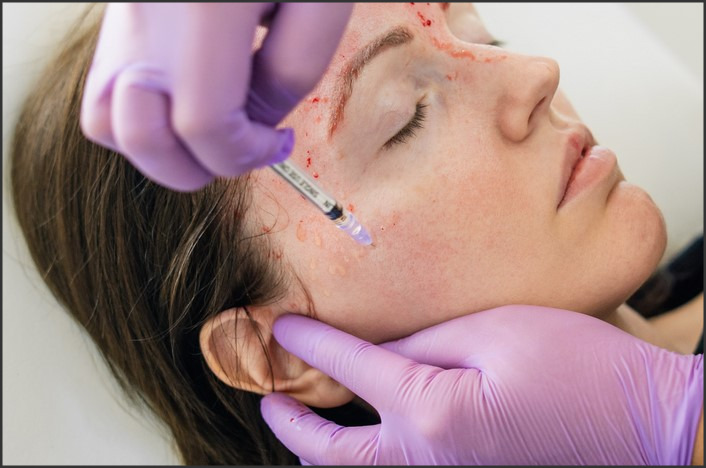Vampire Facial Procedure: PRP Therapy for Skin Rejuvenation

The Vampire Facial Procedure, also known as Platelet-Rich Plasma (PRP) Therapy for Skin Rejuvenation, is a cosmetic procedure that uses the patient’s own blood to promote the healthy activity of skin cells. The process involves drawing blood from the patient, separating the platelets and plasma in a centrifuge, and then injecting or microneedling the concentrated plasma back into the patient’s skin. This procedure is known for its ability to stimulate collagen production, reduce signs of aging, and improve the overall texture and tone of the skin. Despite its dramatic name, the Vampire Facial Procedure is a non-surgical, minimally invasive treatment that has gained popularity for its natural and effective results in skin rejuvenation.
Unveiling the Secrets of Vampire Facial Procedure: PRP Therapy for Skin Rejuvenation
The Vampire Facial Procedure, also known as Platelet-Rich Plasma (PRP) Therapy, has been gaining popularity in the realm of skin rejuvenation. This innovative treatment, despite its somewhat macabre name, is a non-surgical procedure that utilizes the body’s natural healing mechanisms to improve the skin’s texture and appearance.
The name ‘Vampire Facial’ is derived from the use of the patient’s own blood in the procedure. The blood is drawn from the patient and then processed in a centrifuge to separate the platelet-rich plasma (PRP) from the other components. PRP is a component of the blood that is rich in growth factors. These growth factors play a crucial role in wound healing and are believed to stimulate the production of collagen and elastin, two proteins that are essential for maintaining the skin’s elasticity and firmness.
Once the PRP is extracted, it is then re-injected into the patient’s skin using a process called microneedling. This involves creating tiny punctures in the skin using a device equipped with fine needles. The punctures serve as channels for the PRP to penetrate deep into the skin. The combination of microneedling and PRP application triggers the body’s natural healing response, leading to the production of new collagen and elastin.
The Vampire Facial Procedure is lauded for its ability to address a variety of skin concerns. It can help reduce the appearance of fine lines and wrinkles, improve the skin’s texture and tone, and even help with acne scars. Moreover, because the procedure uses the patient’s own blood, there is a minimal risk of allergic reactions or adverse effects.
However, it’s important to note that while the Vampire Facial Procedure can yield impressive results, it is not a quick fix. The procedure typically requires multiple sessions spaced several weeks apart for optimal results. Additionally, the results are not immediate. It usually takes a few weeks for the new collagen and elastin to form and for the improvements in the skin’s appearance to become noticeable.
Despite the somewhat intimidating name, the Vampire Facial Procedure is generally well-tolerated by patients. The use of a topical anesthetic prior to the procedure helps to minimize discomfort. Post-procedure, patients may experience some redness and swelling, similar to a mild sunburn, but these side effects typically subside within a few days.
In conclusion, the Vampire Facial Procedure or PRP Therapy is a promising approach to skin rejuvenation. By harnessing the body’s natural healing mechanisms, it offers a safe and effective way to improve the skin’s appearance. However, as with any cosmetic procedure, it’s important to have realistic expectations and to consult with a qualified professional to determine if this treatment is right for you. The Vampire Facial Procedure may not be suitable for everyone, particularly those with certain blood disorders or those who are taking blood-thinning medications. Therefore, a thorough consultation and evaluation are essential before undergoing this innovative skin rejuvenation treatment.The Vampire Facial Procedure, also known as PRP Therapy for Skin Rejuvenation, is a modern skincare treatment that uses the patient’s own blood to stimulate skin renewal and rejuvenation. It has been found effective in reducing wrinkles, fine lines, and other signs of aging, as well as improving skin texture and tone. However, it’s important to note that the procedure may not be suitable for everyone and potential side effects can include mild to moderate discomfort, swelling, bruising, and redness. Therefore, it’s crucial to consult with a qualified professional before undergoing this treatment.